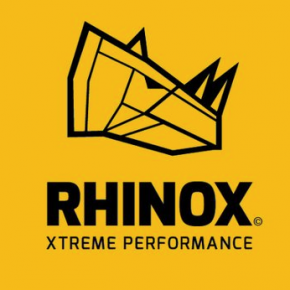
Considerations To Make With Machinery For Your Construction Site
Congratulations – you’ve secured a new contract. Now it’s time to check you’ve got the right equipment to get the job done. The chances are that, if you’re working on a commercial or residential building site, an excavator will be an essential part of your toolkit. However, with so many different machines to choose from, finding the best one for your application is more complex than it sounds.
To complete the job in the shortest timeframe, you need a machine that matches the requirements of your contract. Thankfully, we’ve put together some top tips to help you make the right choice. Here are three considerations to bear in mind.
Construction Site
The first thing you need to consider is whether the excavator you’re looking at meets the demands of your unique construction site. The only way to do this is to imagine all your possible needs when you’re working on the job. Different models perform best on flat landscapes, whereas others will work better with rough terrain and obstacles to navigate, so it’s best to seek advice from the manufacturer before you make a purchase.
Weather Conditions
You must consider the weather conditions you’ll be working in before you rent or buy an excavator. If you’re operating in particularly cold temperatures or areas where there is snowfall, you’ll need to make sure your equipment fits into overnight storage facilities, so it doesn’t freeze over. The same applies to areas with lots of rain, as leaving your machine to get damp will rust the parts and hinder its performance. In extremely hot climates, extra care should be taken to make sure the cooling components of your machine don’t overheat, so be sure to check them regularly.
Machine Size
There are typically three different excavator sizes; mini, standard and large. You’ll need to be sure you’re picking the right sized machine for the job. Small excavators tend to weight under seven tons so are recommended for small jobs and sites with tight space requirements. Standard machines are the most versatile, but they require more power and space than smaller excavators. However, they are easy to use and transport. Large excavators can weigh as much as 80 tons and are most often used on industrial projects that require constant power.
Additional Attachments
Make a list of all the challenges you might face on this new job, and be sure you know what you’re up against. You will need to consider whether you require any additional attachments to your machinery, such as additional buckets, riddle buckets, or breaker steels, for example? If so, you can visit https://www.rhinox-group.com who specialise in machine attachments.
Conclusion
Most excavators are versatile, meaning they will adapt to a variety of work situations. However, you might decide that machines with additional features, such as hydraulic controls, anti-vandalism features or variable power modes, work best for your application. Choosing the right excavator is vital to the success of your project, so don’t be afraid to ask an expert for advice if you need it.
Latest news

21st February 2025
ASSA ABLOY EMEIA: Save valuable time and money with a seamless switch to programmable digital keys
In 2025, access management can be a whole lot easier. By making access part of their digital processes, businesses can put time-consuming key management and the cost of changing the locks firmly behind them. Making this switch is a lot easier than many people think, as ASSA ABLOY explains here…
Posted in Access Control & Door Entry Systems, Architectural Ironmongery, Articles, Building Industry News, Building Products & Structures, Building Services, Doors, Facility Management & Building Services, Health & Safety, Information Technology, Innovations & New Products, Retrofit & Renovation, Security and Fire Protection
21st February 2025
Showersave supports industry leaders in addressing Part L and Part G regulations
Showersave has sponsored and participated in a recent Building Insights LIVE roundtable on ‘Water & Energy Saving Innovations in New Build Housing’.
Posted in Articles, Bathrooms & Toilets, Bathrooms, Bedrooms & Washrooms, Building Associations & Institutes, Building Industry Events, Building Industry News, Building Products & Structures, Building Regulations & Accreditations, Building Services, Exhibitions and Conferences, Interiors, Pipes & Fittings, Plumbing, Retrofit & Renovation, Sustainability & Energy Efficiency
21st February 2025
GEZE: The importance of Specifying High Quality Door Closers on Fire Doors
Andy Howland, Sales & Marketing Director at GEZE UK, discusses why specifying high quality door closers on fire doors is important…
Posted in Access Control & Door Entry Systems, Accessibility, Architectural Ironmongery, Articles, Building Industry News, Building Products & Structures, Building Regulations & Accreditations, Building Services, Doors, Facility Management & Building Services, Health & Safety, Posts, Restoration & Refurbishment, Retrofit & Renovation, Security and Fire Protection
21st February 2025
Insight Data achieves ISO9001 recertification with zero non-conformities
Leading industry data specialist, Insight Data, has successfully achieved the prestigious recertification for ISO9001 with zero non-conformities for the fourth consecutive year.
Posted in Articles, Building Industry News, Building Regulations & Accreditations, Building Services, Information Technology, Research & Materials Testing
 Sign up:
Sign up: